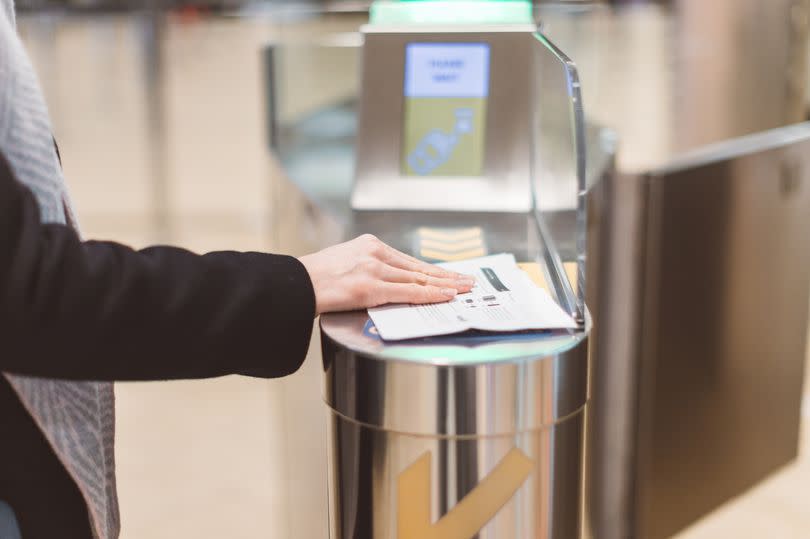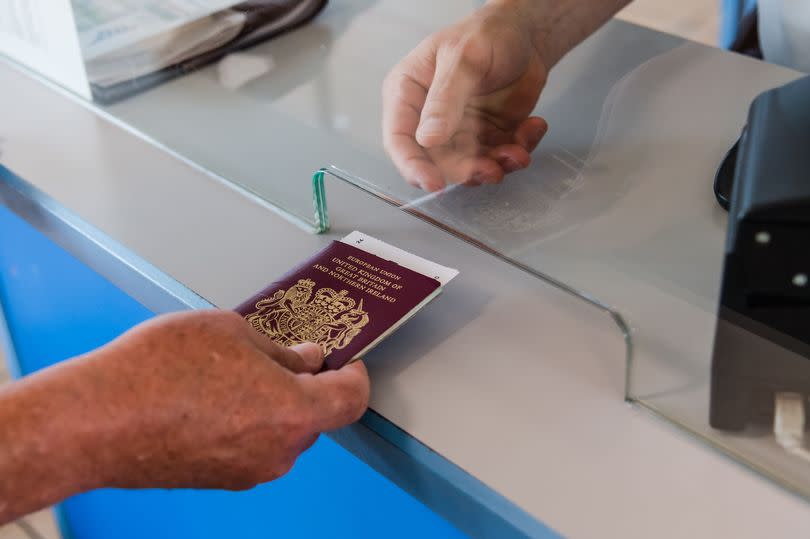Exact date Brits will have to give fingerprints this year when travelling to Europe

British passport holders will soon need to have their fingerprints scanned when jetting off to top European destinations.
In the coming months, UK holidaymakers are set to face more complex procedures when travelling to favourite destinations such as Spain, Italy, France, and Greece.
The EU's Entry/Exit System (EES) is a new automated IT system aimed at registering travellers from non-EU countries, including those who don't require a visa, every time they cross into the EU. Post-Brexit, UK citizens are now part of this group and must adhere to its rules.
Travellers' details, including name, travel document information, biometric data specifically fingerprints and facial images and records of entry and exit dates and locations will be logged by the EES. It will also note instances of denied entry.
The EES is set to do away with the current practice of stamping passports manually, much to the dismay of those who savour collecting stamps in their passports. EU officials argue that manual stamping is "time consuming, does not provide reliable data on border crossings and does not allow a systematic detection of overstayers".
With the introduction of the new system, it's expected to become tougher for individuals to navigate the EU without proper authorisation, reports the Mirror.
The system was initially set to launch in 2022, then rescheduled for May 2023 before being delayed further to the end of last year. After numerous setbacks, it's finally due to launch this autumn.
To help clear potential confusion, ABTA - The Travel Association - has shed light on what travellers can anticipate when the EES system becomes operational later this year.
What travellers should know about the incoming EES system at airports

How will EES work and when will it launch?
Once the new system is up and running, you'll need to provide your passport, have a photo of your face taken, and your fingerprints scanned at passport control upon arrival. EES is slated for introduction in autumn 2024, though an exact date is yet to be confirmed.
Current whispers suggest October 6 as the probable start date.
Who will EES apply to?
It will apply to those travelling for a short stay from what the EU refers to as a 'third country'. These are individuals who are neither EU citizens nor citizens of the Schengen area.
So, it will apply to most people travelling from the UK.
A short stay pertains to visits, holidays or business trips lasting up to 90 days within a 180 day period. The vast majority of travel between the UK and Europe will be categorised as a short stay.
Irish passport holders are exempt from EES. If you're a British passport holder with EU residency, you're also exempt from EES.
Which countries will EES apply to?
When EES comes into effect, these are the countries that will implement it:.
Austria, Belgium, Bulgaria, Croatia, Czech Republic, Denmark, Estonia, Finland, France, Germany, Greece, Hungary, Italy, Latvia, Lithuania, Luxembourg, Malta, Netherlands, Poland, Portugal, Romania, Slovakia, Slovenia, Spain and Sweden.
Despite being part of the European Union, Cyprus and Ireland still manually stamp passports.
Will EES cause queues when leaving the country?
In most instances, the EES checks will be conducted in Europe upon your arrival at your destination airport or port. However, if you're travelling via the Port of Dover or on an international train from the UK (London St Pancras and Folkestone), these checks will occur during passport control in the UK, prior to your departure.
This is due to the presence of a dual border both British and French borders at these locations. However, you won't need to undergo these checks again upon your arrival on the other side.
There have been repeated warnings that the additional time required for individuals to complete their initial registration could result in lengthy queues at the Port of Dover, Eurostar and Eurotunnel terminals.
Join the Daily Record's WhatsApp community here and get the latest news sent straight to your messages.

 Yahoo News
Yahoo News 
